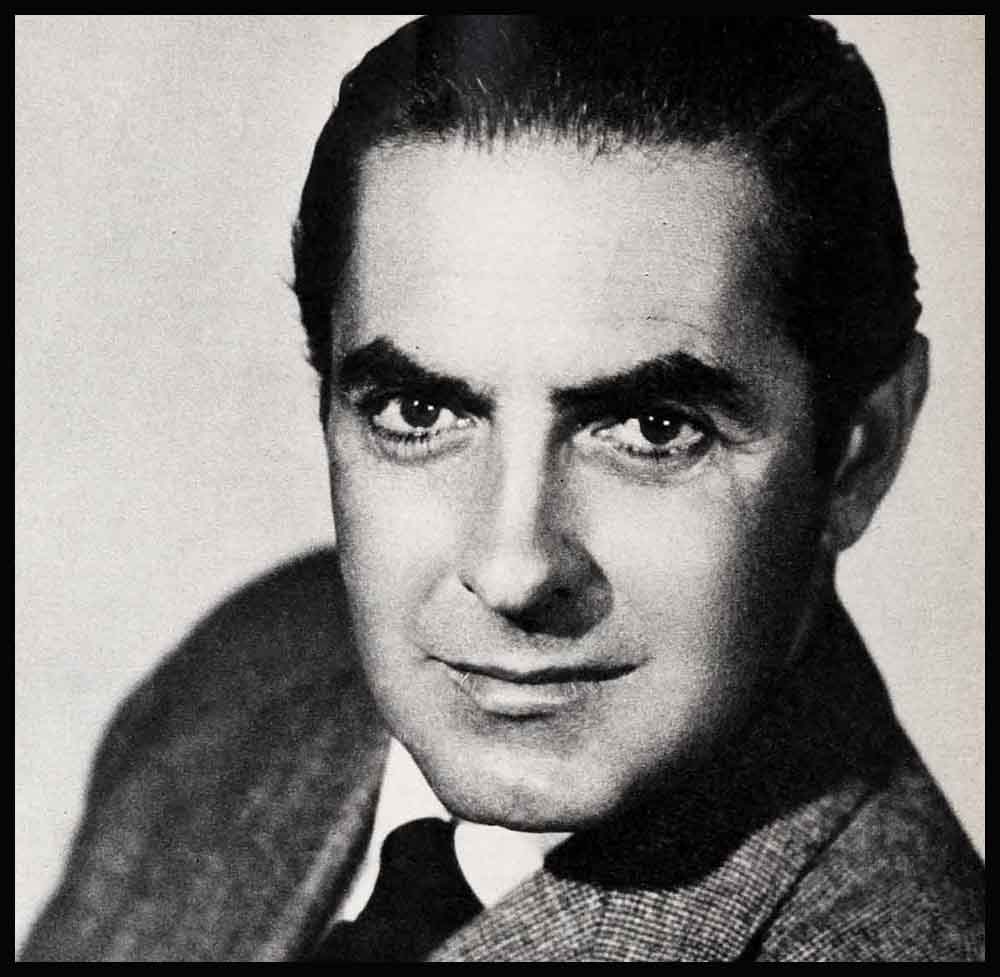
The Power And The Glory
“If I had a chance to remedy the mistakes I’ve made I in my life. I think I’d choose the same mistakes. The new ones might turn out worse!” It was Tyrone Power speaking, as he grinned across the lunch table. To me, facing him now, it seemed incredible to believe that some eighteen years had raced by since we first met—years in which fame, fortune, marriage, divorce, parenthood, war, travel and his development from a pretty boy juvenile to an actor of rich maturity, had made their imprint. And yet, he, himself, had remained the same Ty-riffic guy I’d always known.
Not many people are given the privilege of really knowing Ty. He has acquaintances throughout the world, but among them are only nine close friends—and he’s glad there are so many. The list is typical of Ty’s fondness for people, not Names. It includes his loyal and devoted secretary, Bill Gallagher, who has been with him eighteen years; Captain Bob Buck of TWA, a great buddy ever since they flew to South Africa together in ’47; Evie Johnson, whom he first met when they were both in Katharine Cornell’s company of “Romeo and Juliet”; Walter and Fieldsie Lang—Fieldsie, who dates back to the days when she was Carole Lombard’s Girl Friday, and Walter from his earliest days at 20th; Lou Schreiber, now executive assistant to Darryl Zanuck, but who was casting director at the studio when Ty checked in, back in ’36 (“I don’t see him often, but I know he’ll always be there if I ever need him,” explained Ty); Raymond Massey, who only came into his life recently when they both played together for over a year in “John Brown’s Body,” but he feels as close to Ray and his wife, Dorothy, as if he had known them forever; and finally, the authoress of this story. Needless to say, his inclusion of me in this precious circle touched me deeply. And yet, as well as I, and all these other intimate friends know Ty, there are certain areas of his life he shares with no one.
“My personal problems are my own,” he once told me. “I can’t even discuss them with my mother or sister, Ann, much as I adore them both. I just keep things bottled up within myself.” I sensed he was thinking of his marital unhappiness with Linda Christian. He has never said a word since their separation. As if reading my thoughts, Ty confessed, “I wish I weren’t such an introvert. It’s a sure way of winding up with ulcers, but, thank Heavens, so far I’ve been lucky. All I’ve caught is jaundice!”
It was during this recent jaundice attack, for which rest is necessary to the cure, that Ty, forced to spend every afternoon in bed before his stage performance of “The Dark Is Light Enough,” could lie back and reflect on the past and contemplate his future.
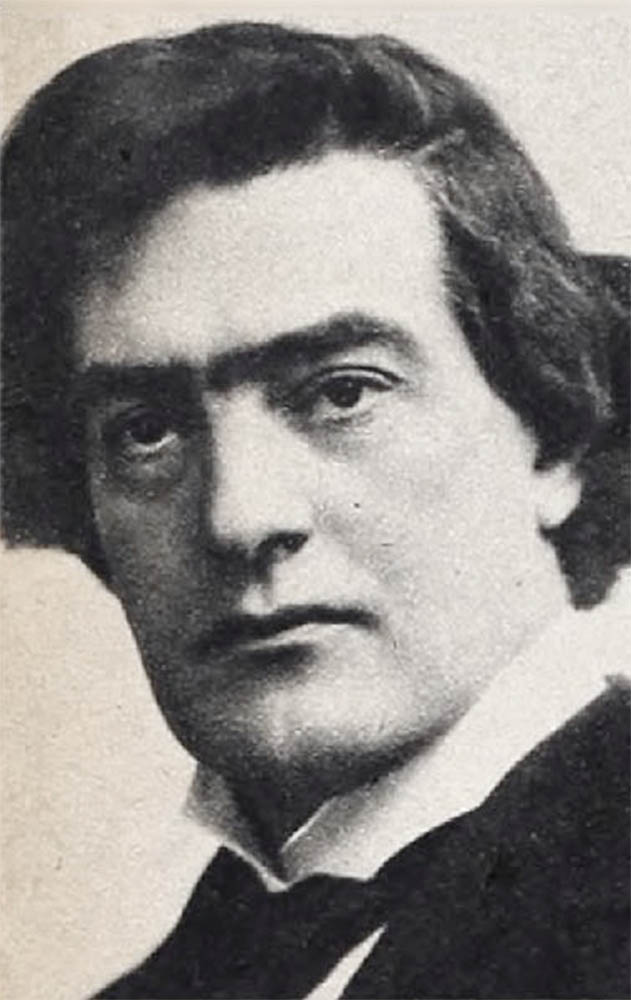
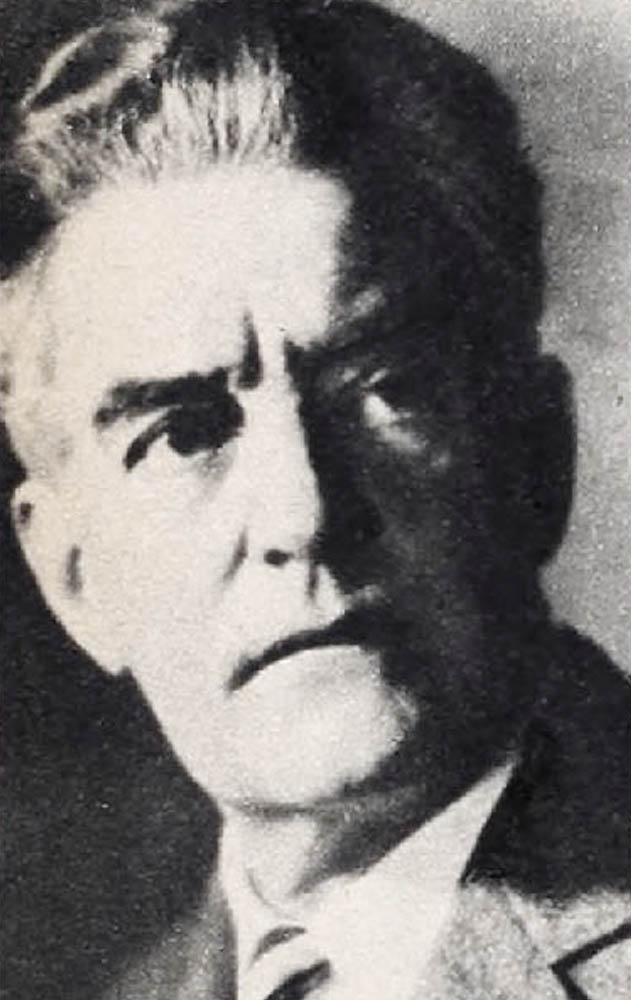
“The greatest force in the world is thought,” Ty said as he leaned over to light my cigarette. “I used to think that if I wanted anything badly enough, I could get it. Now I know that I’ll only get it if it’s right for me! I don’t waste time in regret—only people with nothing else to do can afford that indulgence. When I look back, it’s with pleasure at all the good things that have happened to me. I’ve never had the leisure for hobbies, so I collect memories. and certain ones and certain people stand out vividly.
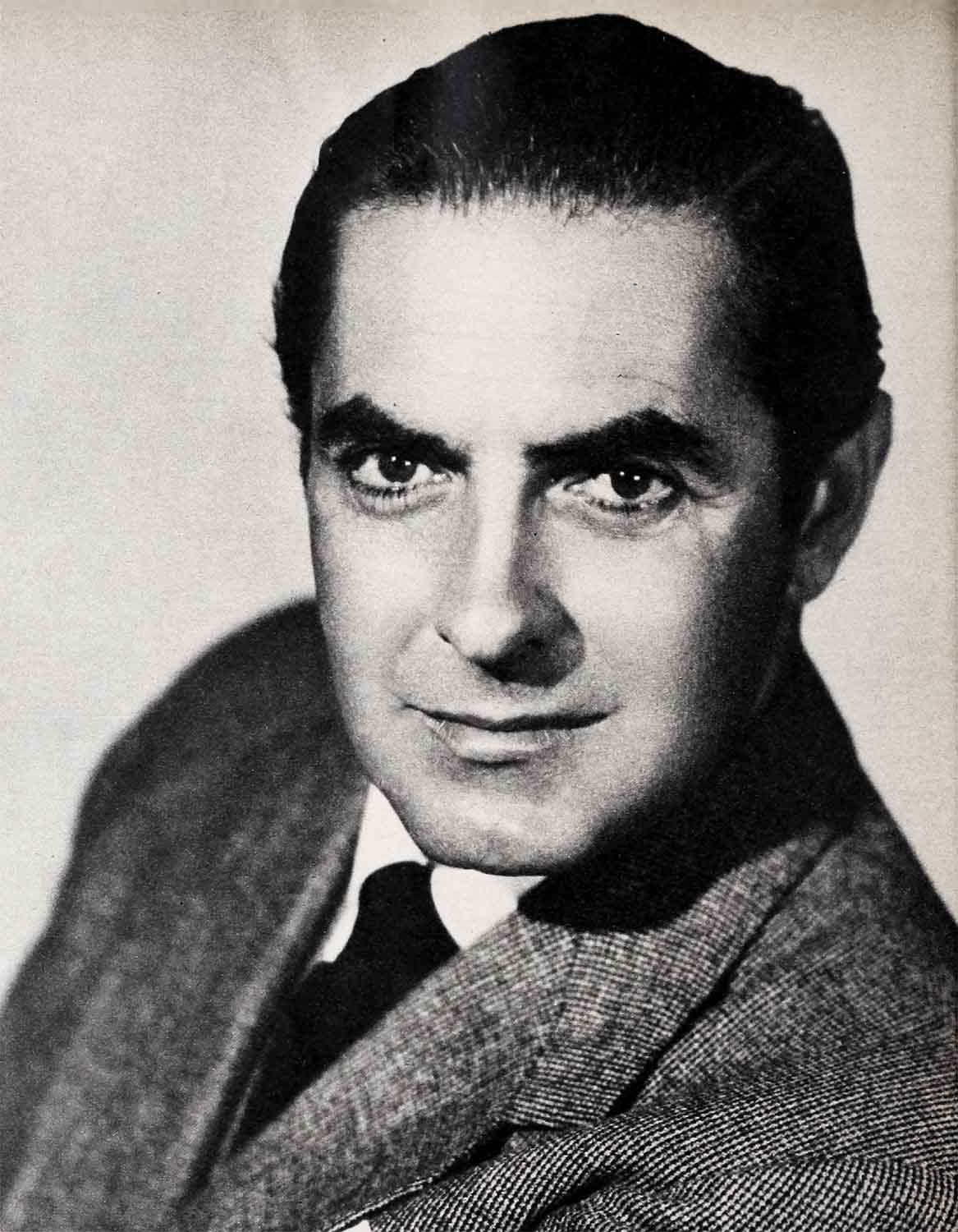
“I remember when I was a kid and the other kids in my class would ask me, “Where did you get that funny name, Tyrone?” (Now there are Tyrones all over the world—even in Hong Kong. Just the other day I received a fan letter that devastated me. It was signed Tyrone Woo!) I remember how I worshipped my father because he was a great actor just as his father had been before him, and how confident I was that I would be the third generation to carry on this glorious theatrical heritage! I remember when I was sixteen years old and got a job as chauffeur to the late humorist writer, Arthur Caesar. He had a summer home in Laguna and he and his wife would often invite me to stay with them. I would lie on the beach, discussing my brilliant future with another sixteen-year-old, named Curtis Kenyon. His uncle Charles had written a famous play called ‘Kindling,’ and he aspired to be a writer, too. He solemnly promised he would write a great part for me. Instead, he got himself a job as a steward on an ocean liner, going around the world, and I never heard directly from him again. But seven years later, when I picked up the script of ‘Loyds of London,’ my first starring role, I almost keeled over when I read, ‘Original Story by Curtis Kenyon!’ To the best of my knowledge, he has never written anything since, nor have our paths ever crossed again.
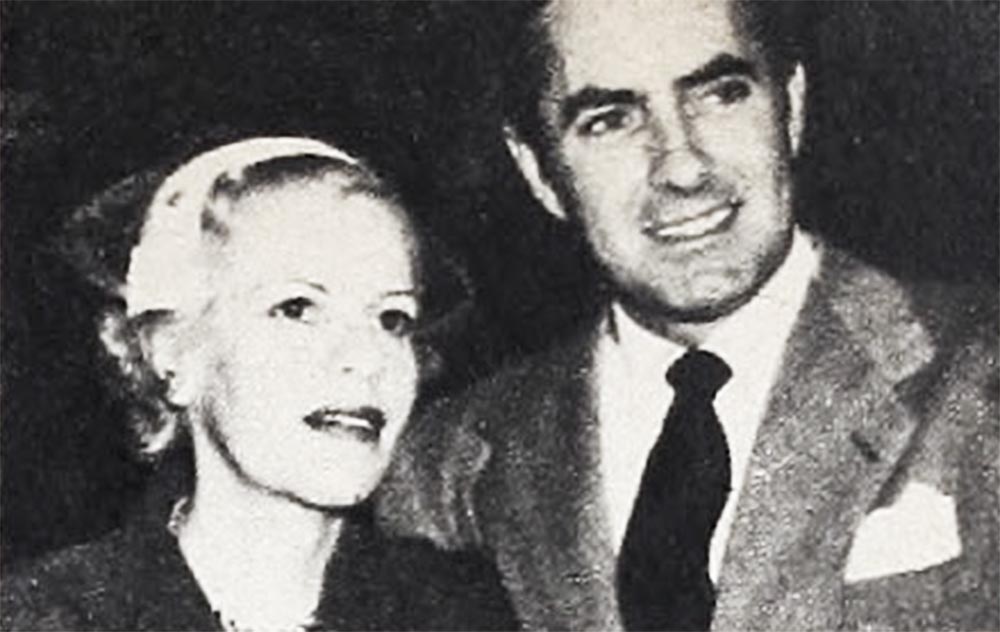
“I remember standing at the window of the small house I shared with my mother, high in the Hollywood hills, watching the floodlights playing over the Carthay Circle, for the gala premiere of ‘Lloyds of London’—with me, such an unknown that I went completely unnoticed as I drove to the theatre in the car that the studio loaned me, in the Tux that they had rented for me. I remember the next morning, when the greatest thing that can happen overnight is recognition—and the dizzying rewards of success, followed by the fear of every actor, ‘All is ephemeral, fame and the famous as well.’ Now that I’ve arrived, can I stay?
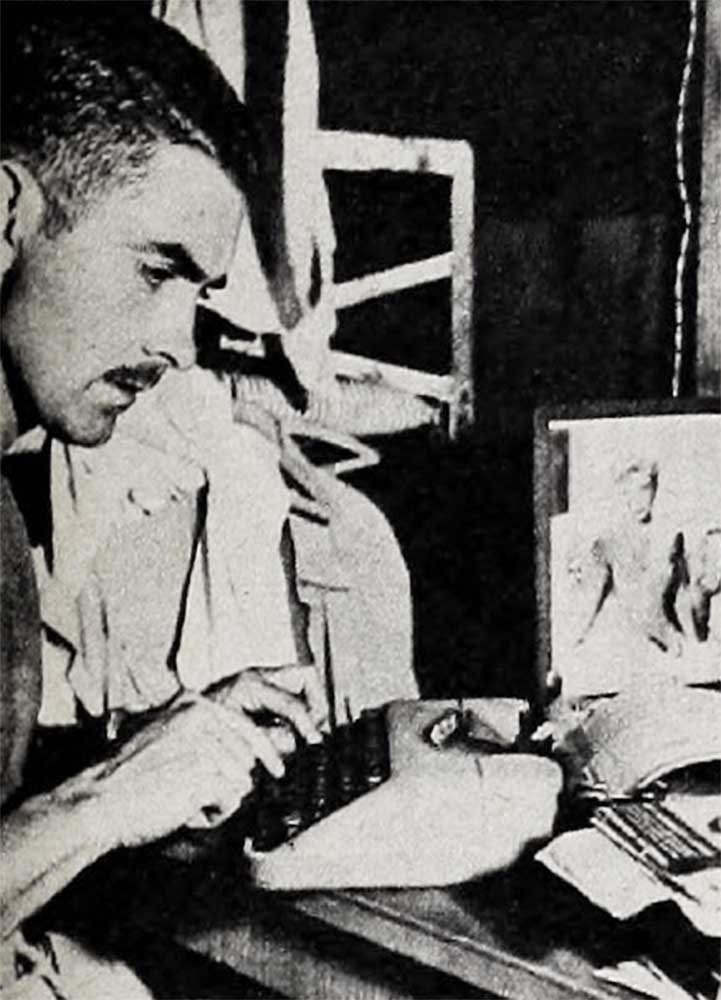
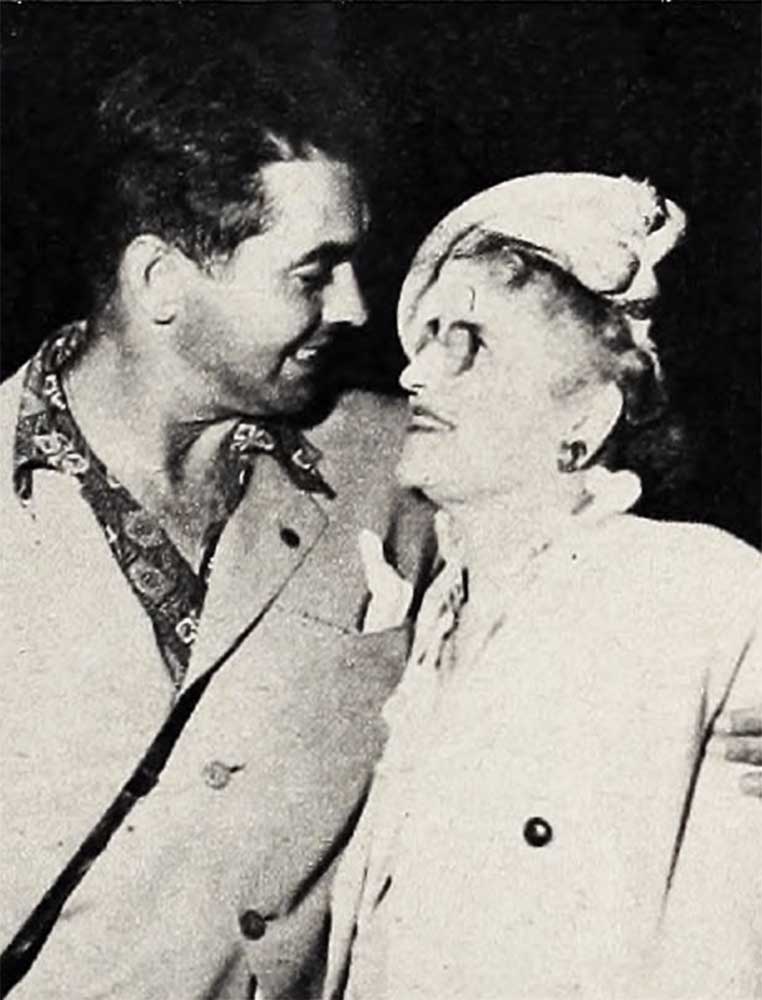
A devoted son to the mother who has always inspired him
I remember so many names on the lot that have come and gone since those early days: Shirley Temple, James Dunn, Janet Gaynor, Ray Griffith, Freddie Bartholomew, Rochelle Hudson, Buddy de Sylva, E. H. Griffith, Alice Faye, Edmund Lowe, Charlie Farrell and Sidney Kent (who was like a father to me). I remember my first studio party at the Biltmore Hotel, when I was asked to escort Rochelle Hudson, whom I had never met. I told Bill Gallagher to buy me a corsage of gardenias for her, which I duly presented on my arrival. She left the room to get her coat, but when she came back, the gardenias were conspicuous by their absence. Later, as I got into the car (again rented by the studio),
I noticed a corsage peeping out of her dress, but it wasn’t mine. Guess she has a steady boy friend, I concluded. Ah well, there’s three dollars down the drain! Then, suddenly, I thought I heard Miss Hudson say, ‘Mr. Power, how sweet of you to send me these three beautiful orchids!’ I looked and my worse suspicions were confirmed. Bill Gallagher had been very generous with my money!
“I remember, after ray marriage to Annabella and we were leasing the small house in Bel-Air where I’d been living with my mother. A young attractive couple with two adorable little boys wanted to rent it. We commented on how divinely happy they seemed, and it wasn’t until months later that we discovered they were Jennifer Jones and Robert Walker! I remember when I was an usher in a movie theatre in my home town, Cincinnati, and traipsing up and down the aisles, I must have seen a picture with Dorothy Mackaill and Jack Mulhall (the Janet Leigh and Tony Curtis of their day) at least twenty-eight times. Years later, when I was a star at Twentieth, I made a picture in which I was supposed to be injured and carried off on a stretcher to a waiting ambulance. Before the first take, I did a double take—one of the stretcher-bearers was Jack Mulhall!

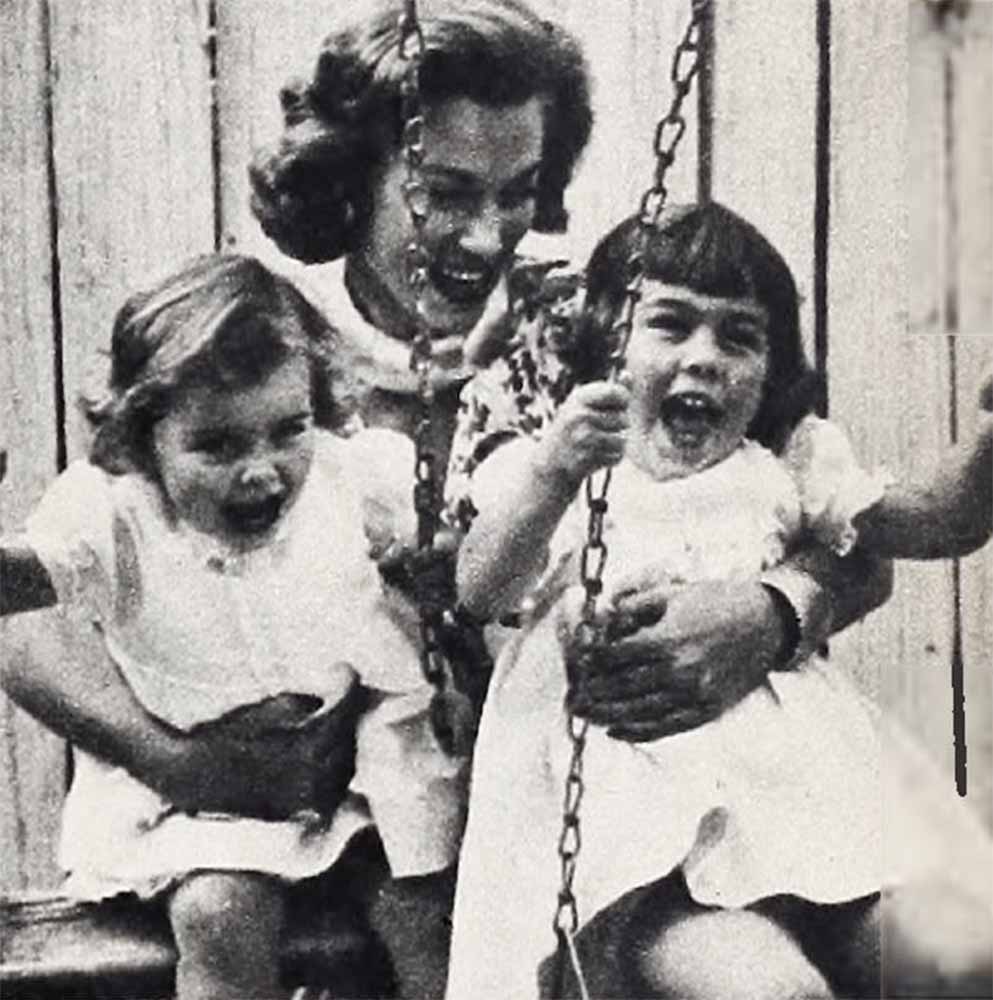
Daughters Taryn, Romina, are with estranged wife Linda
“I remember when I was in the Pacific during the war, getting letters from my mother in which she told me that when1 ever she saw a soldier thumbing a ride she would always give him a lift, but only if he were in the Marine Corps. Then she could casually announce, ‘My son is in the Marines, too,’ so that when their polite reaction was ‘Oh, yes?’, she could then lower the boom and say, ‘Do you by any chance know Tyrone Power?’ I remember when my second daughter, Taryn, was corn, well-meaning friends asking me, Didn’t you want a son?’ and my retort, ‘Why do you think I have two daughters! I’d never swap them.’

“I remember ‘Nightmare Alley’ as my favorite of the some fifty pictures I have made (before ‘The Long Gray Line’)—even though it wasn’t a money-maker—and I remember two major disappointments when Twentieth wouldn’t loan me out for ‘Golden Boy’ and ‘King’s Row.’ I remember a film called ‘Show Them No Mercy,’ with Bruce Cabot, that made a great impression on me. I was on tour with ‘Romeo and Juliet,’ and when I saw it, I remember saying to myself, “If I ever go to Hollywood, I want to work at the studio that made this picture. That studio, need I add, was Twentieth!
“I remember my wife, agent, business manager and all my friends who had my ‘best interests at heart,’ trying to dissuade me from leaving Hollywood for a year to return to the stage in ‘John Brown’s Body.’ I remember the decision to go anyway as a step forward towards the goal I hoped to achieve, to expand myself as an actor by alternating between the stage and screen in roles that took me out of the rut of type casting and challenged my versatility. I, who have traveled all over the world, remember the thrill of touring inside U.S.A., of playing in small communities like Ironwood, Michigan, and Ruston, Louisiana, where the audience reaction was on the same high intellectual level as in any metropolitan center. I remember the joy of another dream realized when I finally had the privilege of working with John Ford in ‘The Long Gray Line.’ And my delight when Marty Maher, whose real life role at West Point I re-created on the screen, told Mr. Ford, ‘I’ve seen the picture three times, and Tyrone Power gets better in it with every performance!’
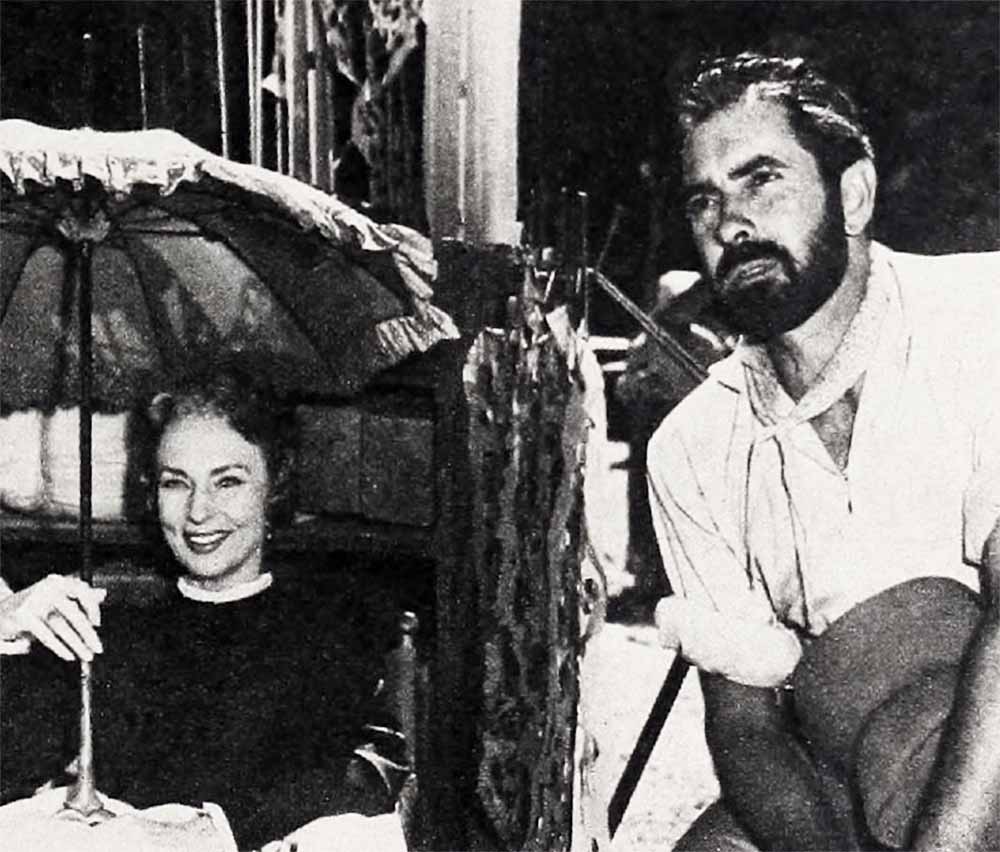
“I remember meeting up with a smart fellow named Ted Richmond who produced one of my biggest money-makers, in ‘Mississippi Gambler,’ and we decided to form our own independent company. We called it Copa Productions and started off with Van Heflin in ‘Count Three and Pray,’ and bought three properties as future vehicles for me—‘Lorenzo the Magnificent,’ to be made in Italy—‘The Stalk.’ in South America—and ‘The Warrior Saint,’ in Africa. Join the movies and see the world has always been my motto!
“I remember a wire that arrived at my Brentwood home a few months ago and opening it as casually as an invitation to a Cobina Wright party—until I saw the signatures: Katharine Cornell and Guthrie McClintic! These names have always been the epitome of everything that is fine and distinguished in the theatre, and they have a very sentimental memory for me, too. It was under their prestige management that twenty years ago, I started my stage career as Burgess Meredith’s understudy in ‘Flowers of the Forest.’ My salary was thirty dollars a week. (The other day, Bill Gallagher sent me a photostat copy of this understudy contract, and my pay envelope in which I had still kept my first dollar all these years. With it, he attached the following cryptic note, ‘Since this is obviously the first and last dollar you have ever saved, will you please return it to me for safeguarding!’) Now Miss Cornell wanted me to be her co-star in Christopher Fry’s winter comedy, ‘The Dark Is Light Enough,’ directed by Guthrie McClintic—at a ‘slight’ increase in salary!
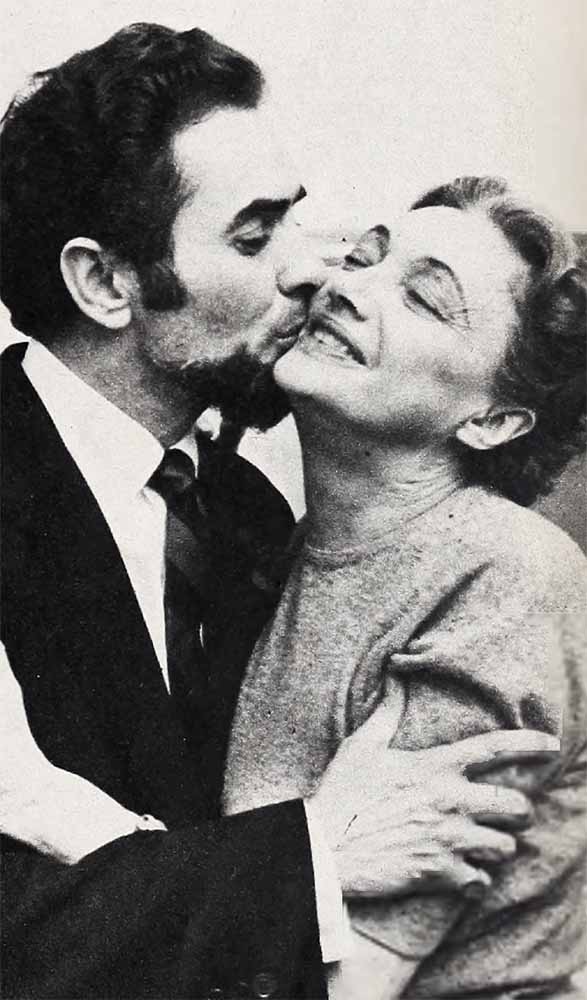
“If you saw this in a movie, you’d say it was too contrived to be convincing, wouldn’t you? But, since truth is stranger than fiction, I found myself back on Broadway, sharing co-starring billing with or of the First Ladies of the American stage, while a block away, at the New York Capitol, ‘The Long Gray Line’ was the feature attraction, and a block farther south, on the Roxy marquee, ‘Untamed,’ which is the picture that wound up my nineteen-year stay at 20th!
“So, now you see, Radie darling, why I can look back at the past with pleasure; but if you were to ask me to name the high spot of all these memories, my answer would be ‘Today!’ Because today I have achieved what I hoped to attain after being tied down to one studio for so long. At long last, I have the freedom to pursue my career—to travel and move about as I want.
“And he who travels fastest, travels alone,” I added pointedly. “Does this mean that you are going to continue to enjoy your bachelor freedom for a while?”
“Definitely,” was his quick retort. “Remember, I was married to Annabella for nine years, then I had what is laughingly referred to as a ‘private life’ in the Navy for four years, and then I was married to Linda for six. So, actually, I’ve never really been single! Besides, its slightly premature to discuss any matrimonial future when I’m only legally separated and not as yet divorced.”
When his final decree comes through (and Linda’s settlement doesn’t include his front teeth and that dollar he saved in his pay envelope!), I’m willing to wager my new spring bonnet that, if he marries again, his third bride won’t be an actress. He wants his next helpmate to be just that, someone interested in his career, not trying to compete with him, someone who won’t be afraid of giving up something of herself in loving him, someone who isn’t a party girl, but who knows that two people really in love can find contentment in themselves, someone to satisfy his greatest desire to have a Tyrone IV to carry on his theatrical heritage.
In the meantime, I can make a prophecy I know will come true. Ty, who will win his first Academy Award nomination for his many-faceted characterization of Marty Maher in “The Long Gray Line,” has his most brilliant acting years ahead. By an amazing coincidence, in 1913, the year that Ty was born, the renowned drama critic, William Winter, wrote a biography of Tyrone, Senior, in which, to any reader today, he might have been talking about Tyrone, Jr. in 1955:
“Power’s physical advantages are extraordinary. His eyes, dark and brilliant, are communicative equally of tenderness and fire. His voice is deep and strong, and of a rarely melodious resonant tone. In his demeanor there is a singular engaging union of grace and courtly dignity. In him are combined dramatic talent, sensitive temperament, enthusiastic spirit, devoted love of acting, the knowledge that is gained by experience, a noble ambition and that great saving, correcting, guiding attribute—a keen sense of humor. He is not yet 44 years old. Much as I esteem him as an actor, I value him even more highly as a man.”
This is the mantle that Tyrone has inherited. No father ever had a son wearing it with more grace or honor.
THE END
It is a quote. PHOTOPLAY MAGAZINE JULY 1955


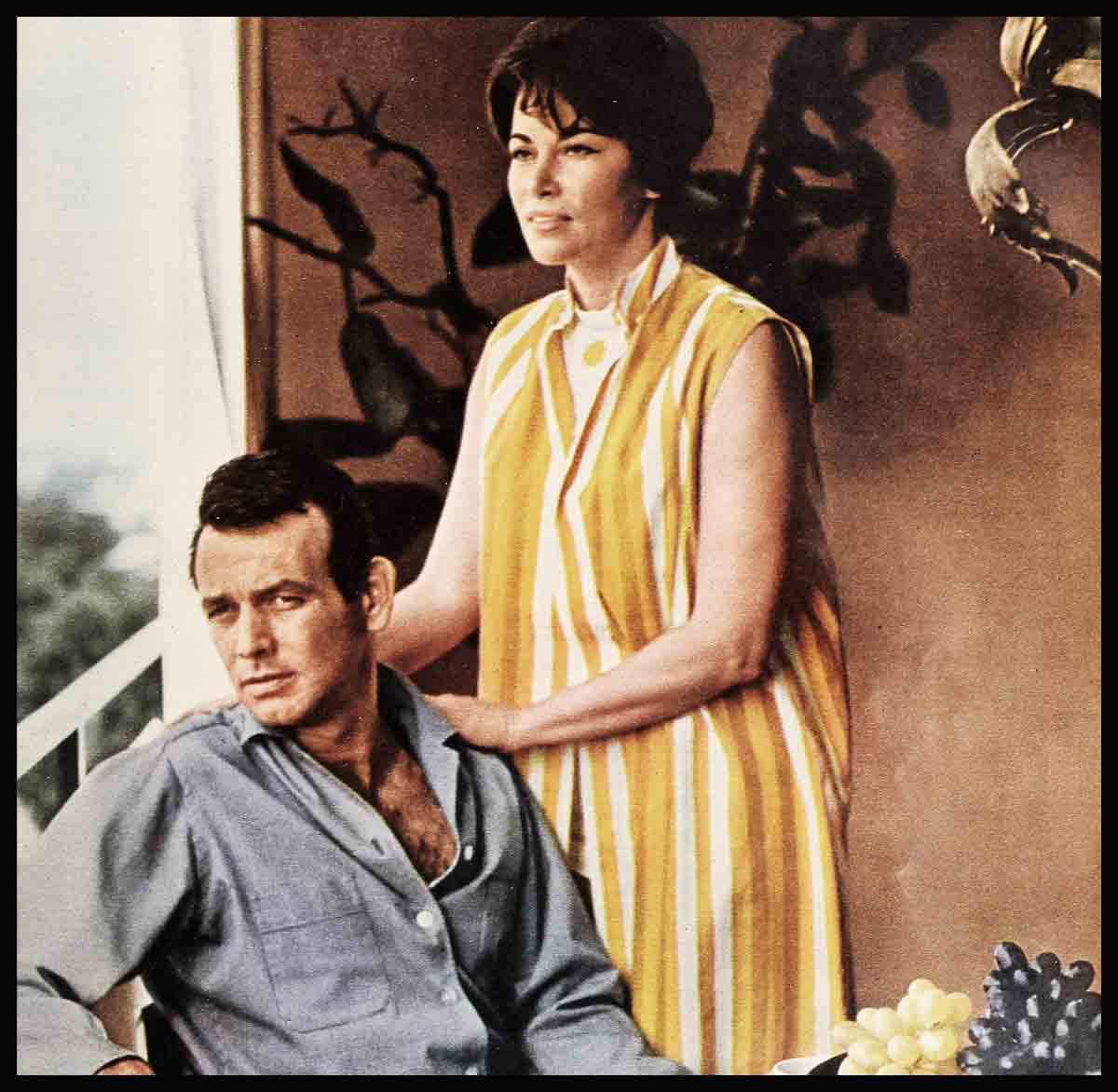

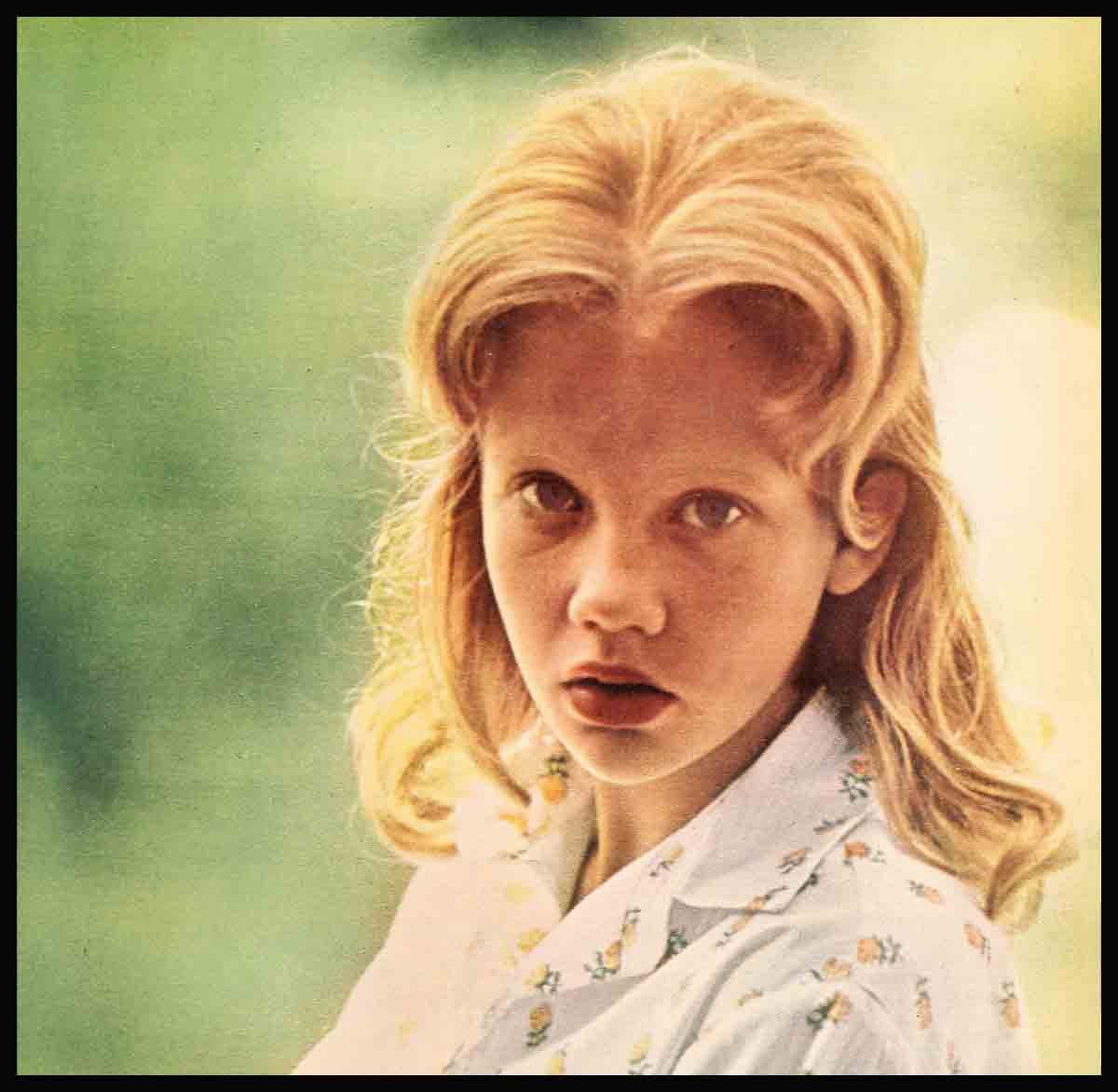
No Comments